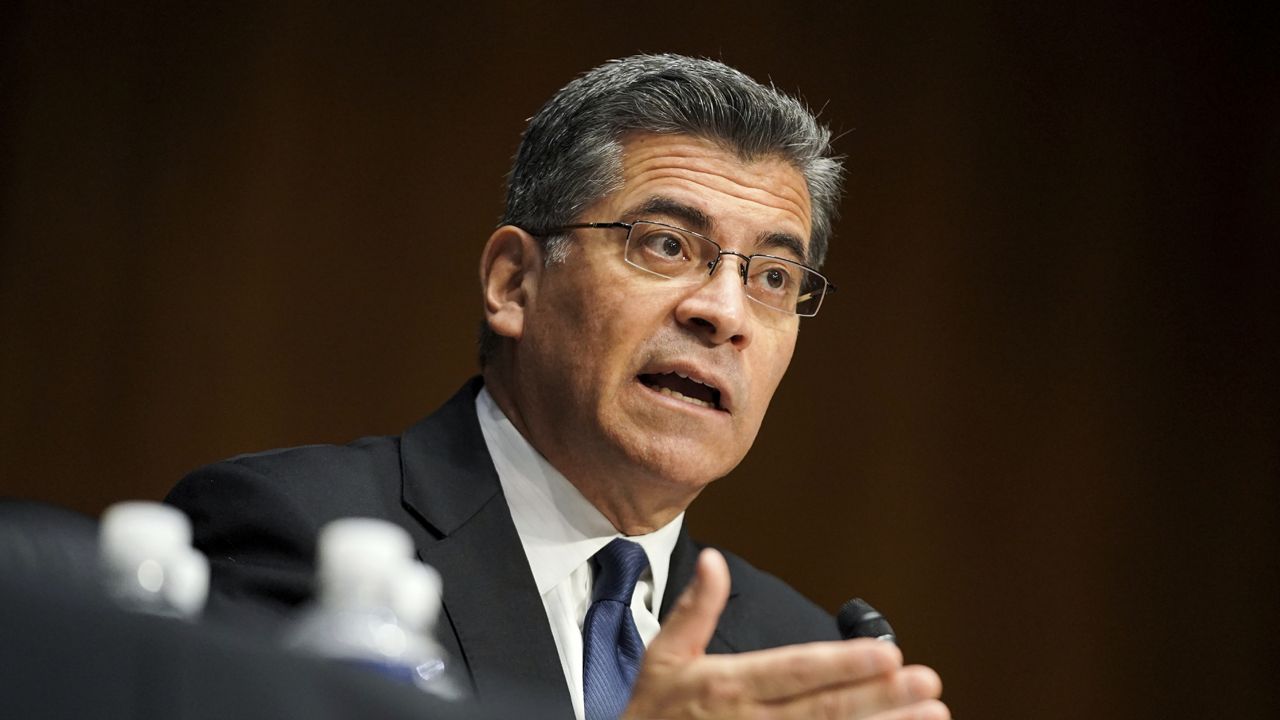California attorney general Xavier Becerra was confirmed by the Senate Thursday to serve as the Secretary of the Department of Health and Human Services. In another historic first for the Biden administration, he will be the first Latino to lead the department.
The final vote was 50-49. Sen. Susan Collins of Maine was the sole Republican vote in his favor. Sen. Mazie Hirono (D-HI) was absent for the vote due to a family emergency, but had previously voiced support for Becerra's nomination.
In a statement released ahead of the vote, Collins cited Becerra’s commitment to “making outstanding provider relief payments expeditiously and improving access to care in rural areas” as reason for her support.
“Although there are issues where I strongly disagree with Mr. Becerra, I believe he merits confirmation as HHS Secretary,” Collins added. “I look forward to working with the Department to achieve bipartisan results on behalf of the American people.”
Becerra’s narrow victory was also thanks in part to the support of moderate Democrat Sen. Joe Manchin of West Virginia, who said despite their numerous disagreements, he believes Becerra will “address the impacts of the COVID-19 pandemic and the numerous needs of our nation in a bipartisan way.”
Manchin and many of his GOP colleagues took issue with Becerra’s record on abortion, gun control, and health care, saying his policies are far too liberal. Senate Minority Leader Mitch McConell called Becerra a “thoroughly partisan actor” before voting no on his nomination.
Becerra has long been an ardent and vocal champion of the Obama-era Affordable Care Act, legislation he helped draft during his time in the House of Representatives, and later defended as California’s attorney general.
Biden stressed Becerra’s support of the act when announcing his nominee, saying: “Xavier spent his career fighting to expand access to health care, reduce racial health disparities, protect the Affordable Care Act, and take on powerful special interests who prey on and profit off people’s health — from opioid manufacturers to Big Tobacco.”
Republicans also voiced concern about Becerra’s record in support of abortion rights. Sen. John Thune (SD) said Becerra as attorney general “aggressively crusaded in favor of abortion” and repeatedly inserted California into abortion litigation involving other states.
“A number of President Biden’s nominees have been qualified, mainstream candidates,” Thune said. “Xavier Becerra is not a mainstream candidate. He’s an extremist who has used the offices he has held to advance an aggressively pro-abortion agenda and to target religious liberty and freedom of conscience.”
Becerra, 63, was a reliable Democratic vote for abortion rights during his tenure in the House. But he wasn’t a leading voice. His issues were immigration, access to health care and education.
Perceptions changed after Becerra was appointed California attorney general in 2017. He sued the Trump administration over its restrictions on abortion, though his office says that only four of the 124 lawsuits Becerra filed against the previous administration dealt with abortion, birth control or conscience rights — key issues for religious conservatives.
Becerra went all the way to the U.S. Supreme Court to defend a California law that required crisis pregnancy centers to provide information about abortion — and lost.
During his confirmation hearings, Becerra told senators that confronting the coronavirus pandemic will be his first priority if confirmed, but he also pledged to expand health insurance, rein in prescription drug costs and reduce racial and ethnic disparities in medical care.
“To meet this moment, we need strong federal leadership,” Becerra said at the first of two hearings on his nomination. “I understand the enormous challenges before us and our solemn responsibility to faithfully steward this agency that touches almost every aspect of our lives.”
The Associated Press contributed to this report.



